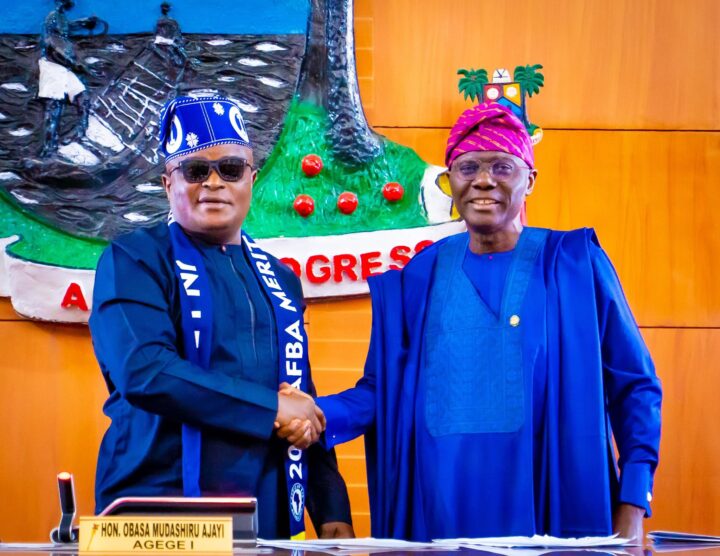Lagos State witnessed a seismic political shift Monday as Governor Babajide Sanwo-Olu strategically navigated the aftermath of House Speaker Mudashiru Obasa’s impeachment, choosing to monitor developments from Lagos House, Marina, while delegating the weekly executive council meeting to his deputy.
Breaking from his usual routine, Sanwo-Olu opted to stay away from the executive council meeting, assigning Deputy Governor Dr. Obafemi Hamzat to preside over what turned out to be an unusually brief session. Sources close to the administration revealed that executive members responded to the news with apparent relief, reportedly describing it as “good riddance to bad rubbish.
The dramatic events began unfolding in the early hours as armed security personnel, including the Rapid Response Squad (RRS) and Lagos State Task Force, took strategic positions around the Lagos House in Alausa, Ikeja, and the House of Assembly Complex. Their presence proved crucial when hoodlums attempted to storm the Assembly complex, leading to multiple arrests.
This security deployment reflected the authorities’ anticipation of potential unrest following the impeachment, which saw 39 members of the house unanimously vote to remove Obasa over allegations of financial impropriety. The swift and decisive security response effectively prevented any breakdown of law and order.
While Governor Sanwo-Olu maintained public silence on the development as of press time, inside sources indicate he welcomed the change with optimism, viewing it as an opportunity to forge better working relationships following what was described as a “frosty experience” under Obasa’s leadership. Plans are reportedly underway for the governor to meet with the new speaker and principal officers.
The impeachment marks the culmination of long-simmering tensions between Obasa and both the governor’s office and the Governance Advisory Council (GAC). Sources familiar with the situation reveal that Obasa had repeatedly drawn criticism for showing disrespect to the Office of the Governor, leading to interventions from President Bola Tinubu during the recent Yuletide break in Lagos.
Despite Tinubu’s peace-brokering efforts at his Ikoyi residence, the situation ultimately proved untenable. The impeachment announcement at noon triggered celebrations among staff at both the House of Assembly and the governor’s office, reflecting widespread dissatisfaction with what many viewed as Obasa’s increasingly authoritarian leadership style.
The response from state workers suggests deep-seated frustration with the former speaker’s tenure, with many expressing the view that he had become increasingly disconnected from both his colleagues and the broader interests of Lagos State. The jubilant atmosphere following his removal indicates a strong desire for change within the state’s political establishment.
This political upheaval represents more than just a leadership change in the state legislature; it signals a potential shift in the dynamic between the executive and legislative branches in Lagos State. As Sanwo-Olu prepares to engage with the new assembly leadership, observers anticipate a recalibration of this crucial relationship, with implications for governance and policy implementation in Nigeria’s economic capital.
The events underscore the delicate balance of power in Lagos State politics and highlight how quickly political fortunes can change, even for seemingly entrenched figures. As the dust settles on this dramatic development, attention now turns to how this new political landscape will shape the governance of Lagos State moving forward.



